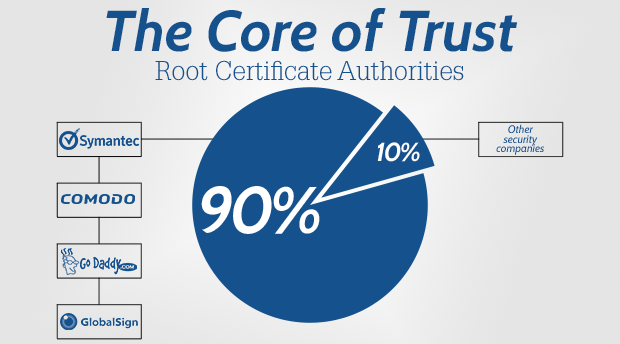
SSL or Secure Sockets Layer is a critical security tool that can help site owners protect data transmissions between their servers and the users. SSL is used on a wide variety of websites, from personal blogs to online stores. As long as a site is gathering personal information – for example, email addresses used to send out newsletters – then implementing SSL security is certainly a good idea. To be able to enable SSL on a website, you need to get an SSL Certificate.
What is an SSL Certificate?

What Every Web Developer Needs To Know about SSL
An SSL Certificate is a certificate or a digital signature that identifies you as an entity. It includes details about your site, the site’s owners or the company behind it, the entity issuing the certificate, a public RSA key and various other security details.
With a valid SSL Certificate installed, users can use HTTPS (secured HTTP protocol) instead of the standard HTTP to access your site. A padlock icon or a green address bar will also appear on the user’s browser, indicating that your site is certified and secured.
Why do SSL and SSL Certificates matter?

HTTPS and SSL: How does it all work?
There are a few reasons why implementing SSL security and maintaining a valid certificate matter. For starters, SSL ensures that the information submitted by users is only seen by the entity who owns the website and not anybody else. For online stores, where users must enter their credit card information, this level of security is critical. The lack of SSL security will discourage users from making a purchase.
SSL also protects users and site owners from information theft. Instead of using an open protocol, the data is streamed through a secured layer and cannot be intercepted by other parties along the way. Whether you are distributing general information or capturing user data, that extra layer of security can make a lot of difference.
Of course, Google and other search engines are starting to prioritize secured websites when displaying search results. The SEO benefit of using a valid SSL Certificate is certainly not one that you want to miss, especially in today’s competitive market.
Who are the SSL Certificate Authorities and why are they different?

Fuming Google tears Symantec a new one over rogue SSL certs
This is perhaps the most frequently asked questions about SSL Certificates. Why can a company sell SSL certificates for $500 or more while others are giving them away for free? The answer is credibility.
A Certificate Authority is actually the one who issues SSL certificates. There are a lot of them on the market, ranging from big names such as Verisign and CyberTrust to hosting companies like GoDaddy. The SSL Certificates each of these authorities issues are actually the same. They can be installed and used similarly.
The difference, as I said before, is credibility. When Verisign issue an SSL Certificate, for instance, users who check that certificate will see Verisign’s signature on it and will (most likely) consider the site credible. This is because Verisign is such a big name in internet security and has been around for years.
Of course, you can also get a trust seal from the entity that issued your SSL Certificate. A trust seal is a logo that you can place on your site. This logo will link back to a certain page that certifies or explains more about your site’s SSL security. The trust seal is also part of the reasons why certain certificate authorities charge so much for an SSL Certificate.
Can I secure multiple domain names?
The short answer to this question is no. An SSL Certificate can only be used for a single domain and sub-domain name. If you have an SSL Certificate for www.yourdomain.com, for example, you cannot use it to secure mail.yourdomain.com. Do secure both sub-domain names, you will have to purchase two SSL Certificates.
So, where should I get my SSL Certificate?
There is no quick answer to this question. Similar to finding a good domain name registrar or web hosting company, you will have to consider several things:
– First, determine the amount of money you can afford to spend on the SSL Certificate. You can get one for as little as $30 and as much as $1,000, so it is important to have a clear budget in mind.
– Read reviews and compare certificate authorities. Fortunately, there are a lot of review sites and resource centers that specialize in SSL certificate authorities. Comparing service providers and deals will not be as difficult as you think.
– Don’t hesitate to find deals and special offers. Since SSL Certificates is important to your credibility, the best way to save is to find special offers instead of going for the cheapest certificate you can find. This way, you can still get a certificate from a well-known authority without breaking your budget.
Once you have a valid SSL Certificate issued, don’t forget to set it up correctly on your server and provide your customers with that extra layer of security.




Thanks for sharing this SSL information I really enjoyed reading this article…..
Good Information about SSL Certificates….
Its nice, I appreciate you. SSL is now become one major SEO ranking factors.